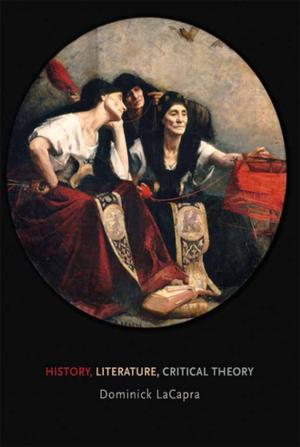The Sleep of Behemoth
Disputing Peace and Violence in Medieval Europe, 1000–1200
Nonfiction, History, Medieval| Author: | Jehangir Malegam | ISBN: | 9780801467882 |
| Publisher: | Cornell University Press | Publication: | December 15, 2009 |
| Imprint: | Cornell University Press | Language: | English |
| Author: | Jehangir Malegam |
| ISBN: | 9780801467882 |
| Publisher: | Cornell University Press |
| Publication: | December 15, 2009 |
| Imprint: | Cornell University Press |
| Language: | English |
In The Sleep of Behemoth, Jehangir Yezdi Malegam explores the emergence of conflicting concepts of peace in western Europe during the High Middle Ages. Ever since the early Church, Christian thinkers had conceived of their peace separate from the peace of the world, guarded by the sacraments and shared only grudgingly with powers and principalities. To kingdoms and communities they had allowed attenuated versions of this peace, modes of accommodation and domination that had tranquility as the goal. After 1000, reformers in the papal curia and monks and canons in the intellectual circles of northern France began to reimagine the Church as an engine of true peace, whose task it was eventually to absorb all peoples through progressive acts of revolutionary peacemaking. Peace as they envisioned it became a mandate for reform through conflict, coercion, and insurrection. And the pursuit of mere tranquility appeared dangerous, and even diabolical.
As Malegam shows, within western Christendom’s major centers of intellectual activity and political thought, the clergy competed over the meaning and monopolization of the term "peace," contrasting it with what one canon lawyer called the "sleep of Behemoth," a diabolical "false" peace of lassitude and complacency, one that produced unsuitable forms of community and friendship that must be overturned at all costs. Out of this contest over the meaning and ownership of true peace, Malegam concludes, medieval thinkers developed theologies that shaped secular political theory in the later Middle Ages. The Sleep of Behemoth traces this radical experiment in redefining the meaning of peace from the papal courts of Rome and the schools of Laon, Liège, and Paris to its gradual spread across the continent and its impact on such developments as the rise of papal monarchism; the growth of urban, communal self-government; and the emergence of secular and mystical scholasticism.
In The Sleep of Behemoth, Jehangir Yezdi Malegam explores the emergence of conflicting concepts of peace in western Europe during the High Middle Ages. Ever since the early Church, Christian thinkers had conceived of their peace separate from the peace of the world, guarded by the sacraments and shared only grudgingly with powers and principalities. To kingdoms and communities they had allowed attenuated versions of this peace, modes of accommodation and domination that had tranquility as the goal. After 1000, reformers in the papal curia and monks and canons in the intellectual circles of northern France began to reimagine the Church as an engine of true peace, whose task it was eventually to absorb all peoples through progressive acts of revolutionary peacemaking. Peace as they envisioned it became a mandate for reform through conflict, coercion, and insurrection. And the pursuit of mere tranquility appeared dangerous, and even diabolical.
As Malegam shows, within western Christendom’s major centers of intellectual activity and political thought, the clergy competed over the meaning and monopolization of the term "peace," contrasting it with what one canon lawyer called the "sleep of Behemoth," a diabolical "false" peace of lassitude and complacency, one that produced unsuitable forms of community and friendship that must be overturned at all costs. Out of this contest over the meaning and ownership of true peace, Malegam concludes, medieval thinkers developed theologies that shaped secular political theory in the later Middle Ages. The Sleep of Behemoth traces this radical experiment in redefining the meaning of peace from the papal courts of Rome and the schools of Laon, Liège, and Paris to its gradual spread across the continent and its impact on such developments as the rise of papal monarchism; the growth of urban, communal self-government; and the emergence of secular and mystical scholasticism.















